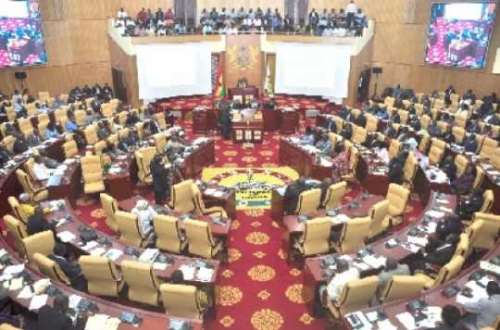Ghana’s Power Class: When Laws Become Tools of Privilege and Abuse

In Ghana’s evolving democracy, one troubling pattern continues to haunt the nation — the tendency of political and economic elites to make laws that serve their interests rather than the public good. Many citizens and analysts argue that every time a new administration takes power, the first instinct of those in authority is not to strengthen justice, but to create legal cover for impunity.
Over the years, several policies and legislative instruments have been passed with noble intentions, only to become weapons of abuse in the hands of those meant to enforce them. Laws designed to promote accountability or order have too often been turned into shields for corruption, political witch-hunting, and selective justice.
“We have built a system where the law is not a guide for fairness but a tool of control,” said a legal analyst who spoke to Nsemgh.com. “Those who draft the laws know how to bend them — because they design them that way.”
From procurement regulations to land administration, tax exemptions, and appointment protocols, the elite class continues to manipulate the legal framework to their advantage. Whether in government, business, or traditional leadership, Ghana’s aristocracy has found ways to benefit from loopholes, leaving the ordinary citizen exposed and powerless.
A Culture of Selective Justice
Ordinary Ghanaians face the full weight of the law for minor infractions, while influential figures accused of major wrongdoing often escape accountability through technicalities or political protection. This persistent double standard has deepened public cynicism toward state institutions.
“When a poor man steals a goat, he goes to jail. When a rich man steals millions, he gets a handshake and a board appointment,” a resident of Kumasi told Nsemgh.com.
The cycle continues as successive governments repeal, amend, or reinterpret laws to accommodate their political allies — ensuring that no ruling class is ever truly held accountable.
The Cost of Legal Manipulation
This culture of legal abuse undermines investor confidence, erodes public trust, and slows national progress. Key sectors such as agriculture, health, and infrastructure continue to suffer, while administrative bottlenecks and favoritism remain entrenched in the public sector.
Civil society groups warn that unless the nation begins to pass laws grounded in equity, justice, and transparency — not political convenience — Ghana risks institutional collapse under the weight of hypocrisy and elitism.
The Way Forward: Reclaiming the Spirit of the Law
Experts recommend urgent reforms, including:
- Transparent stakeholder consultations before passing major bills.
- Independent oversight on implementation and enforcement.
- Legal education that emphasizes ethics over influence.
- Strict accountability mechanisms for lawmakers and ministers.
“A just society is not built on the number of laws it passes,” said a governance expert at the University of Ghana. “It is built on the fairness with which those laws are applied.”
As Ghana approaches another election cycle, citizens are demanding more than promises — they are demanding principled leadership.
For a democracy to thrive, the law must serve the people, not the powerful.
www.nsemgh.com

